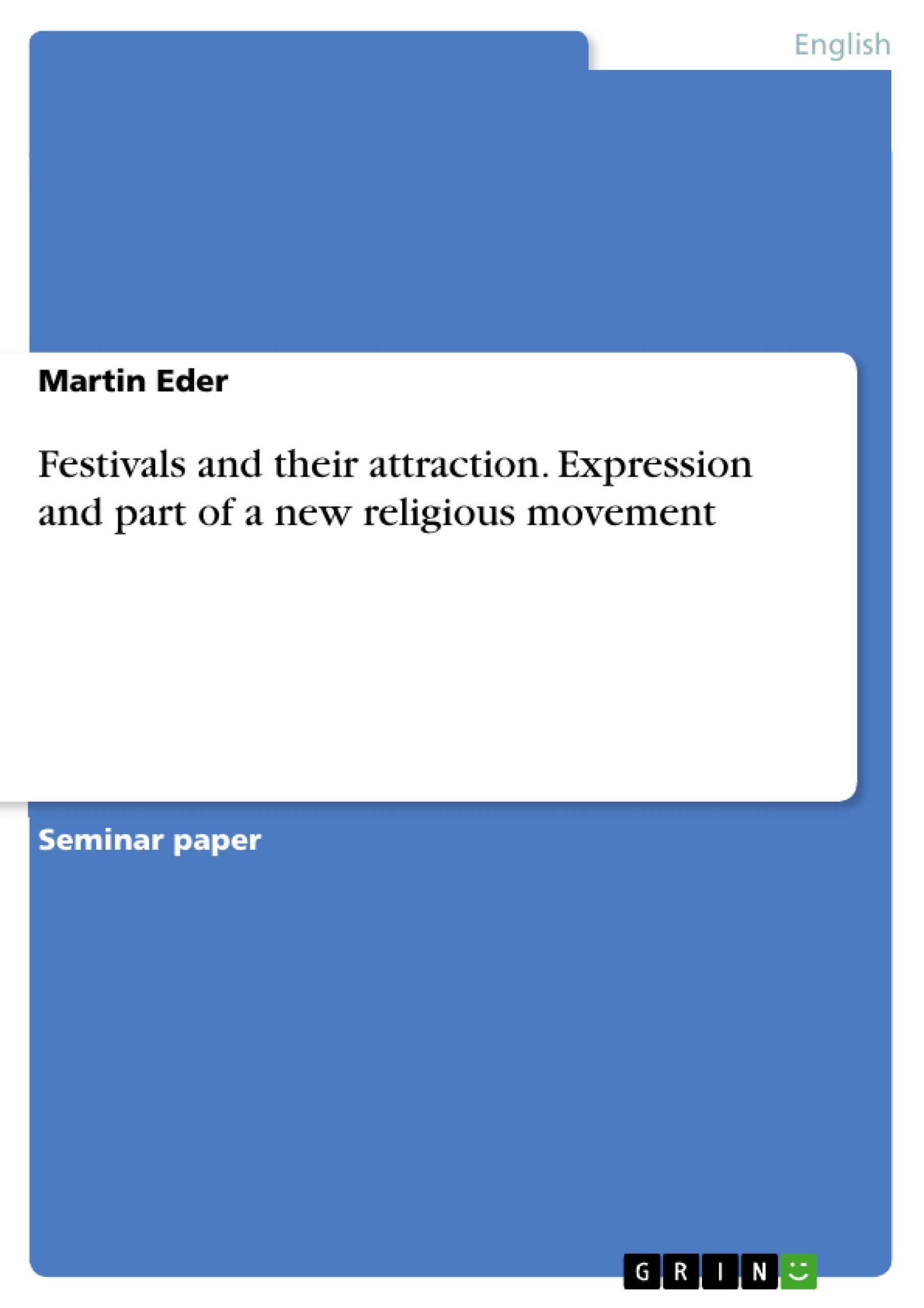This term paper deals with music festivals as a phenomenon in Great Britain and its attribute of being part of a new form of religious movement. Apart from the historical origins and the development throughout the time of festivals the focus is on the comparison between religions and the fan cult in the music business and its religious structures.
Inhaltsverzeichnis (Table of Contents)
- Introduction
- How did a festival become what it is nowadays?
- The phenomenon of a festival – What makes it that special?
- Music as a new form of religion
- Services in the world of music and the influence of the audience
- Conclusion - Despite criticism on the way to an established belief
- Works cited
- Introduction
Zielsetzung und Themenschwerpunkte (Objectives and Key Themes)
This term paper examines music festivals in Great Britain, specifically exploring their role in the emergence of a new religious movement. Beyond the historical origins and development of festivals, the paper focuses on comparing the structures of religion and the fan culture in the music industry. * The evolution of music festivals from their historical roots to their contemporary form. * The unique qualities of music festivals that contribute to their special appeal. * The comparison of religious structures with the fan culture in the music industry. * The impact of music festivals on social interactions and the suspension of traditional norms. * The relationship between music festivals and carnival, circus, and the Roman concept of "bread and games."Zusammenfassung der Kapitel (Chapter Summaries)
This preview does not include content from the conclusion or final chapter to avoid spoilers. * **Introduction:** The paper sets out to explore music festivals as a new form of religious movement in Great Britain. It establishes the focus on comparing the structures of religion and the fan culture in the music industry. * **How did a festival become what it is nowadays?:** This chapter traces the historical development of music festivals, highlighting their evolution from early religious festivals to contemporary large-scale events. It explores the diversity of musical styles and genres represented at festivals and discusses their common features, such as outdoor venues, merchandise vendors, and social activities. * **The phenomenon of a festival – What makes it that special?:** This chapter delves into the unique aspects of music festivals that contribute to their appeal. It examines the suspension of social norms, the element of carnival, and the role of "festival fringe" activities, such as comedic performances. * **Music as a new form of religion:** This chapter explores the potential for music to function as a new form of religion. It analyzes the similarities between religious structures and the fan culture in the music industry, focusing on the role of artists as figures of worship, the ritualistic aspects of concerts and festivals, and the communal experience of shared beliefs. * **Services in the world of music and the influence of the audience:** This chapter examines the relationship between the music industry, its artists, and the audience. It analyzes the influence of the audience on the music industry and explores the ways in which music festivals cater to the demands and expectations of their fans.Schlüsselwörter (Keywords)
This paper focuses on music festivals in Great Britain, examining their historical evolution, cultural significance, and potential as a new form of religious movement. The paper explores themes such as the fan culture in the music industry, religious structures, carnival, circus, and the impact of festivals on social interactions and traditional norms.Frequently Asked Questions
Are music festivals a new form of religious movement?
The paper explores this phenomenon by comparing religious structures with fan cults and communal rituals found at major music festivals.
What makes the phenomenon of a festival so special?
Festivals offer a suspension of traditional social norms, creating a unique space for communal experiences, carnival-like atmosphere, and shared beliefs.
How did music festivals evolve historically?
They evolved from early religious and folk celebrations into large-scale contemporary events representing diverse musical styles and social activities.
What is the "festival fringe"?
The fringe refers to additional activities beyond music, such as comedy performances, circus elements, and merchandise vendors that complete the festival experience.
How do artists function in this "musical religion"?
Artists are often viewed as figures of worship, with concerts and festivals serving as ritualistic services for a dedicated audience.
- Quote paper
- Martin Eder (Author), 2009, Festivals and their attraction. Expression and part of a new religious movement, Munich, GRIN Verlag, https://www.grin.com/document/281351



